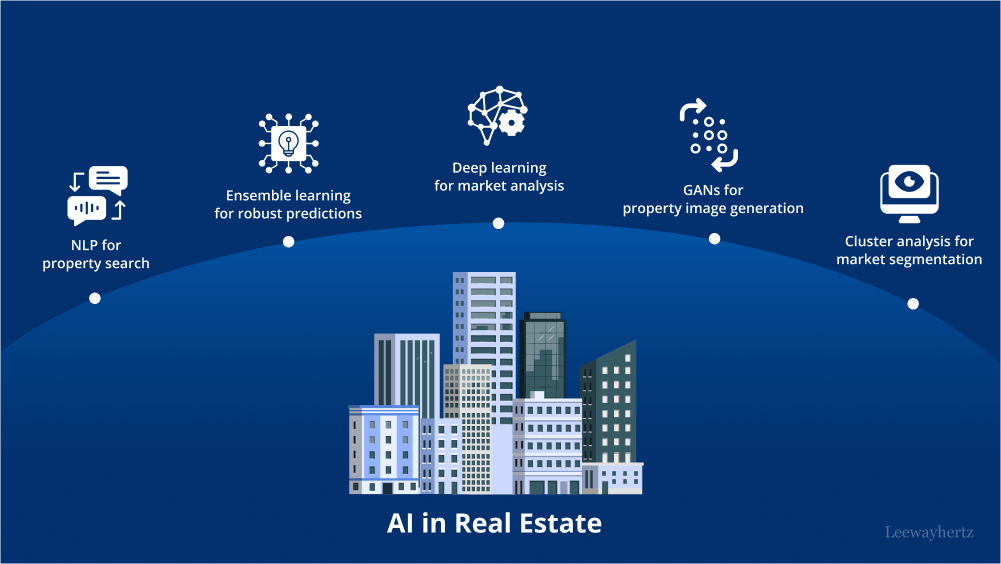Artificial Intelligence (AI) is reshaping the real estate industry by automating processes, enhancing decision-making, and personalizing customer experiences. From property searches to predictive analytics, AI offers tools that streamline operations and create new value for buyers, sellers, and agents alike.
How Is AI Used in Real Estate?
AI in real estate involves the use of machine learning, data analytics, and intelligent automation to improve various aspects of property management, sales, and investment. By analyzing vast amounts of data, AI helps stakeholders make smarter, faster, and more accurate decisions.
Key Applications of AI in Real Estate
Property Valuation and Pricing
AI models can assess market trends, location data, property features, and historical sales to estimate property values accurately. These dynamic valuations help buyers avoid overpaying and enable sellers to price competitively in real time.
Predictive Analytics for Investment
Real estate investors use AI-powered analytics to forecast future property values, rental yields, and neighborhood growth. AI can identify high-return opportunities by analyzing patterns that may not be obvious to human analysts.
Smart Property Search
AI enhances property search engines by learning user preferences and showing highly relevant listings. Natural language processing (NLP) and machine learning allow platforms to understand complex search queries and provide personalized recommendations.
Virtual Assistants and Chatbots
AI-driven chatbots and virtual assistants help real estate websites provide 24/7 customer support, schedule appointments, answer queries, and guide users through the buying or renting process—reducing agent workload and improving user experience.
Automated Document Processing
AI tools can read and process legal documents, lease agreements, and contracts with high accuracy. This speeds up transactions and reduces human error in document handling and verification.
Fraud Detection and Risk Assessment
AI systems monitor financial transactions, detect anomalies, and flag suspicious activities to prevent fraud. They also assess creditworthiness and risk levels of tenants or buyers, helping landlords and financial institutions make safer decisions.
Smart Building Management
AI is integral to smart buildings that optimize energy usage, automate maintenance alerts, and enhance security systems. Sensors and AI-driven software help facility managers improve efficiency and reduce operational costs.
Drone and Image Analysis
AI-powered drones and computer vision technologies can analyze aerial images of properties, inspect building conditions, and even generate 3D models, improving property marketing and inspection accuracy.
Considerations for Using AI in Real Estate
While AI is driving innovation, responsible implementation is crucial:
- Data Privacy: Real estate firms must handle sensitive user and financial data with strict compliance to privacy laws.
- Bias and Fairness: AI models must be monitored for biased predictions that may affect pricing or lending decisions unfairly.
- Human Oversight: AI should assist, not replace, expert judgment—especially in negotiations and personalized client interactions.
Conclusion
AI is revolutionizing real estate by introducing efficiency, accuracy, and personalization into every stage of the property lifecycle. From smarter property searches to predictive investment insights, AI empowers stakeholders with actionable data and automation. As technology continues to evolve, adopting AI responsibly will be key to unlocking its full potential in the real estate sector.







Leave feedback about this